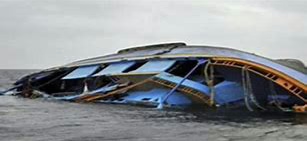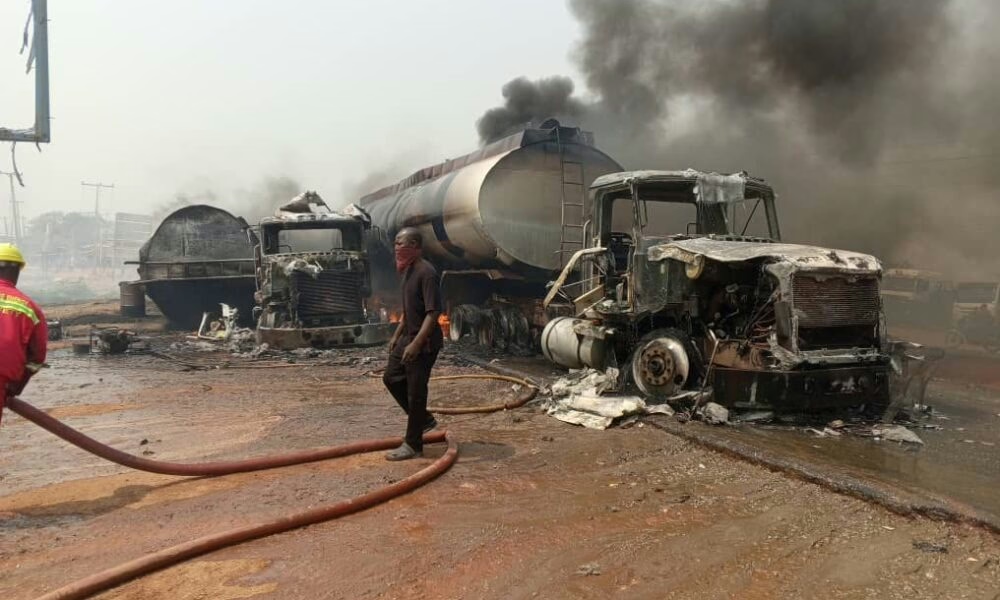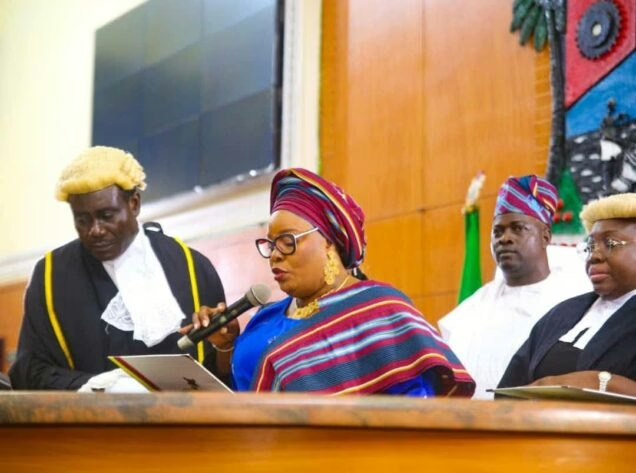The recent boat capsize in Kogi State that claimed over 54 lives is a grim reminder of the perilous state of Nigeria’s inland waterways.
More than just a statistic, this incident is a profound tragedy for the families and communities left behind, grieving their loved ones who embarked on a journey but never returned.
Sadly, this accident is not an isolated case; over the past four years, approximately 2,500 lives have been lost to similar mishaps on Nigeria’s waterways.
These recurrent disasters highlight systemic failures and underscore the urgent need for reforms to prevent further loss of life.
In the early hours of a Friday morning, a boat carrying over 200 passengers capsized on the River Niger en-route to a weekly market in Niger State.
The passengers, primarily market traders and farm labourers, represented a cross-section of Nigerians striving to earn a living. Only 24 survivors were rescued, with many still missing as hopes for their recovery continue to dwindle.
The absence of a passenger manifest further complicated rescue efforts, leaving authorities unable to determine how many people were onboard or their identities.
This oversight underscores a larger issue of regulatory laxity and inadequate safety protocols, which exacerbate the dangers of water transportation in Nigeria.
Nigeria’s waterways have become synonymous with danger, as avoidable boat accidents claim hundreds of lives yearly.
According to Dr. Bashir Jamoh, a maritime expert and advocate for safer waterways, these tragedies stem from preventable causes, including overloading, poorly maintained vessels, lack of life jackets, untrained operators, and night operations.
These issues are not only alarming but also reflective of the broader neglect in the governance and regulation of water transportation.
Dr. Jamoh’s recent address on the Kogi tragedy serves as a clarion call for immediate and decisive action.
His recommendations provide a blueprint for reform, aimed at addressing both the immediate risks and long-term challenges facing Nigeria’s inland waterways.
Dr. Jamoh, who called for immediate measures for safety advocated for formation of a Joint Task Force.
This is as, he pushes for a collaborative effort between the Nigerian Maritime Administration and Safety Agency (NIMASA) and the Nigerian Inland Waterways Authority (NIWA), saying “that it is urgently needed”.
He explained that this task force should identify existing safety gaps, enforce current regulations, and propose new measures where necessary.
By adopting a risk-based approach, the task force can focus on high-risk areas and implement targeted solutions to reduce accidents.
Secondly, he advocated for mandatory use of life jackets, saying that: “One of the most preventable causes of fatalities in boat accidents is the lack of life jackets. Ensuring that every passenger wears a life jacket before boarding can dramatically increase survival rates in the event of a mishap. Regulatory agencies must enforce this requirement rigorously.
He also called for the prohibition of night operations, stating that: “Many accidents occur during night operations when visibility is poor, increasing the likelihood of collisions and navigational errors. Banning boat operations after dusk is a practical step that jetty owners and regulatory agencies must enforce”.
Jamoh, while calling for enhanced search and rescue facilities, he said: “Establishing well-equipped search and rescue stations at strategic locations along Nigeria’s waterways can provide timely responses during emergencies, thereby reducing fatalities. These centers should be staffed with trained personnel and equipped with modern rescue tools”.
In his advocacy for long-term solutions, he recommended training and certification of operators.
Advertisement
Against the foregoing backdrop, he explained that the role of skilled boat operators cannot be overstated in ensuring safet
He noted that many accidents are caused by inexperienced operators who lack the knowledge to navigate waterways or manage emergencies. Setting up training centers in regions heavily reliant on water transportation can ensure that only certified individuals are permitted to operate boats.
Also, he called for modernization of boats, explaining that “A significant number of accidents involve old, poorly maintained boats that are unfit for use.
He added that “The government and private sector must prioritise the replacement of these vessels with modern, safe, and water-worthy alternatives, saying that this investment is critical for reducing the frequency of accidents.
In his suggestion for regular safety inspections and registration, he said: “NIMASA and NIWA must enforce mandatory registration and routine inspections of all boats. Only vessels that meet strict safety standards should be allowed to operate. Boats that fail these inspections should be decommissioned to prevent avoidable tragedies”.
The maritime expert, while calling for public awareness campaigns, explained that educating passengers and operators about the importance of safety measures, such as wearing life jackets and avoiding overcrowded boats, can foster a culture of safety. Public awareness campaigns can also empower passengers to demand adherence to safety protocols.
On Government’s role in ensuring safety, Dr. Jamoh, said: “The government bears significant responsibility for the safety of its citizens. Investing in manpower development, infrastructure, and regulatory enforcement is a critical first step. Training centers for boat operators, acquisition of modern vessels, and funding for search and rescue operations are areas where government intervention can make a significant impact”.
Additionally, he said inter-agency collaboration is essential for effective governance of Nigeria’s waterways.
He emphasised that agencies like NIMASA, NIWA, and other maritime bodies must work together to develop and enforce comprehensive safety policies, saying that this collaboration can create a unified framework for regulating water transportation and ensuring compliance with safety standards.
On stakeholders’ responsibility, he said the responsibility for improving safety on Nigeria’s waterways extends beyond the government, and advised that Jetty owners must enforce operational guidelines, such as prohibiting night operations and ensuring the availability of life jackets.
“Boat operators must prioritise safety over profit, adhering to regulations on vessel capacity, maintenance, and passenger welfare. He said passengers, too, have a role to play by refusing to board unsafe or overcrowded boats and demanding adherence to safety protocols”, he said.
On how the root causes could be addressed, Dr. Jamoh identified several root causes of boat accidents, including overloading, poor weather conditions, and inexperienced operators. Tackling these issues requires a multifaceted approach.
To put his position in details in this context, he urged regulatory agencies to enforce weight limits for boats and penalize operators who flout these rules by carrying overload.
On weather awareness, he urged training operators to read weather forecasts and understand their implications as they can help avoid accidents caused by adverse weather conditions.
On operator’s competence, he said establishing mandatory training and certification programs will ensure that only qualified individuals operate boats, thereby reducing the risk of accidents.
Looking at the issue from the human cost of neglect, Dr. Jamoh, explained that every life lost to a preventable boat accident is a tragic reminder of the cost of inaction.
He added that beyond the immediate grief of families, these losses have broader implications for communities and the nation. Breadwinners, parents, and children are among the victims, leaving behind economic and emotional voids that are difficult to fill.
Without doubt, the Kogi State tragedy is a painful example of the consequences of neglect. It serves as a wake-up call for all stakeholders to prioritize safety and take proactive measures to prevent future occurrences.
In fact, the increasing cases of boat capsizes in Nigeria demand urgent and sustained action.
Dr. Jamoh’s recommendations provide a comprehensive roadmap for reform, but their implementation requires the collective effort of all stakeholders. From government agencies and private sector players to community leaders and individual passengers, everyone has a role to play in ensuring the safety of Nigeria’s waterways.
By addressing both immediate risks and long-term challenges, Nigeria can transform its inland waterways into safe and reliable transportation corridors. The lives of countless Nigerians depend on the commitment to act decisively and effectively. The time for action is now.











